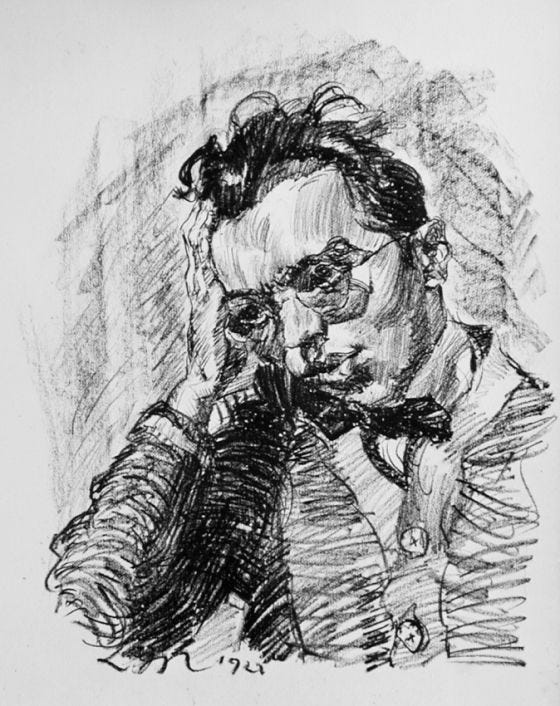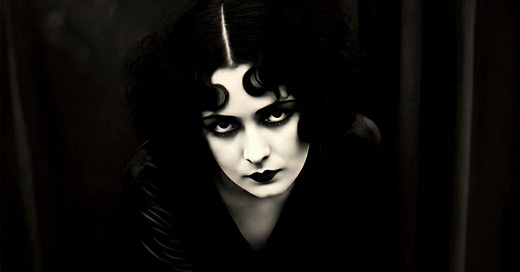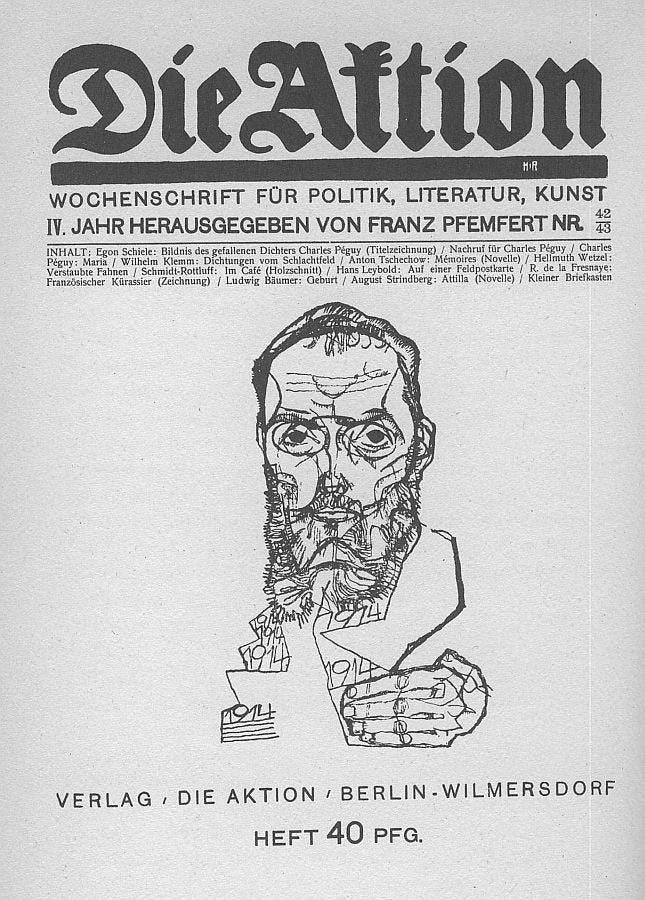Alfred Wolfenstein first appeared in Twilight of Humanity in the volume’s seventh poem, “City Dwellers.” His next poem, the ninth, was “House of Beasts” (“Bestienhaus”), and below is a new English translation of that work. Two posts back, I published a commentary on Alfred Wolfenstein himself, along with an English translation of his poem “City Dwellers.”
About Alfred Wolfenstein, Twilight of Humanity’s original editor Kurt Pinthus lamented, in a 1959 retrospective about the seminal Expressionist volume that he had assembled 40 years before, that “hardly anything is still known about such unique and intrinsically worthwhile poets as … Wolfenstein.” And to this day, Alfred Wolfenstein is still not as well-known—outside German-speaking countries—as are his colleagues Gottfried Benn, Georg Heym, and Georg Trakl. (Indeed, even within German-speaking nations, Wolfenstein is not as well-known.)

What follows, therefore, is a brief biographical sketch meant to augment what I originally wrote about this tragic poet—a poet who committed suicide in a hospital in Nazi-occupied Paris in 1945, rather than be imprisoned by a Third Reich that considered him a “degenerate artist”—in my post about Alfred Wolfenstein on November 28, 2024.
Here it is:
Alfred Wolfenstein: A Brief Biographical Sketch
Alfred Wolfenstein (1888-1945) was a German-Jewish Expressionist poet known for his stark portrayals in verse of urban alienation, tormented mental states, and social injustice. In Paul Raabe’s German Expressionism anthology, Claire Jung wrote that Wolfenstein played a formative role in the development of the German Expressionist movement through its publication Die Aktion, which lasted from 1911 until 1932:
”In the summer of 1911—I was then nineteen years old—I experienced what was to be the most important encounter of my life: I was introduced to the literary circle of the Aktion. This literary and political journal had been founded that year by Franz Pfemfert and in it was to be found the avant-garde literature of the time. For many young writers, this journal was the first springboard to fame. Poems by Gottfried Benn, Johannes R. Becher, Max Herrmann-Neisse, Georg Heym, Else Lasker-Schiiler, Jakob van Hoddis, Alfred Wolfenstein, Ernst Stadler, Alfred Lichtenstein, Oskar Kanehl, Richard Oehring and Ernst Blass appeared in it, together with prose works by Franz Jung, Ludwig Rubiner, Franz Blei, Ivan Goll, Walther Rilla, Heinrich Schaefer, Erwin Piscator and many others. […] Among the contributors to the Aktion were Karl Liebknecht and Rosa Luxemburg.”
Keep reading with a 7-day free trial
Subscribe to Twilight of Humanity: German Expressionist Poetry in English to keep reading this post and get 7 days of free access to the full post archives.






